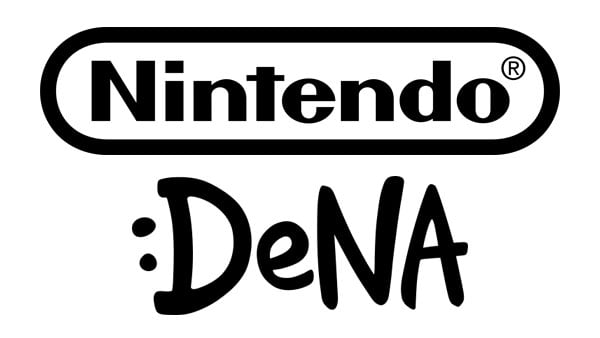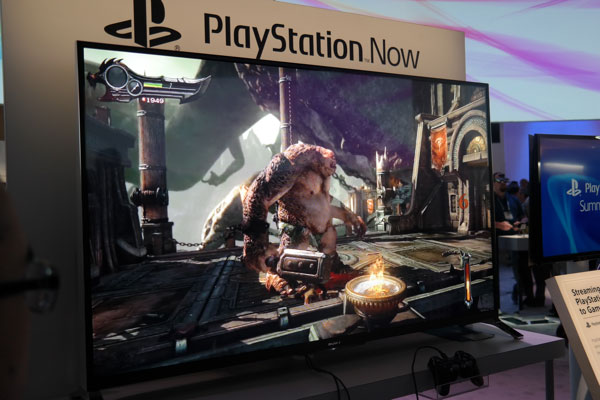 |
| Oh, what a tangled web they weave. Image courtesy of Gematsu. |
Nintendo Can Do It Right
Nintendo as a company has always aimed at the younger generation. The company started making toys around 100 years ago and today the developer still very much considers itself toy company. Even it's most well known developer, Shigeru Miyamoto, has stated that he loves making toys and that his games are meant to be used for play and to allow individuals to explore their own creativity.
But times have changed. Kids play more differently today than ever before. Technology keeps advancing at such a rapid rate and children are adopting it better than anyone else. Touch screens and smart devices can now deliver dozens of hours of cheap entertainment that most children find engaging. And video game developers are seeing this, and exploiting it, by creating cheap, shallow games that require piles of cash to actually play through. They're less toys and more advertising for the next level you have to pay for or the next game that will release from the developer.
This is obviously where a lot of concern about Nintendo creating mobile games stems from. Previously, developers have not created games that many hardcore fans consider worthy of playing because the games are built on simple premises and require lots of cash to continue or lots of time waiting for "recharging".
But of all the companies that are making the move to mobile platforms, Nintendo is by far the most trust worthy. The studio develops excellent games in house every quarter. They aren't all big blockbusters, but they are fun and engaging. These games are also built in a way that most age groups can relate to and enjoy the game, from little kids playing on an easy mode to adult gamers who have played the companies IP's for years. All of these games will also be brand new games, i.e. not ports of current games. The fact that Nintendo will be developing the games themselves should be a huge relief to fans. This means we WON'T be getting a Mario that requires pay-to-jump game play. Ever.
 |
| Remember, Nintendo made games that utilize this hardware very well... Image courtesy of Wikihow. |
However, this partnership isn't just one sided. DeNA will also be involved with maintaining the game services for each title released by Nintendo. DeNA has been a fairly successful mobile game developer and publisher, but the games it has released are not very traditional. The titles are often like the terrible mobile titles that I described above, full of in-app purchases that essentially break the game as the player pays for more upgrades.
The good news is that DeNA isn't in charge of the development nor the pricing with Nintendo's mobile games. Nintendo will decide all pricing and will look at all pricing options, including, but not limited to, free-to-play, when developing games. DeNA is simply in charge of release and services of these titles, and though the company's previous games aren't exactly what hardcore Nintendo fans would want to play, they run well and the services behind them run well.
So with Nintendo developing the games and DeNA maintaining them, it looks like these titles will be just fine for fans of Nintendo and, honestly, even better than most of the games on the mobile marketplace.
Why the Move Makes Sense for Today
As I said before, Nintendo has always aimed for the younger generation when developing most of it's games. And despite all of the company's efforts, a majority of this market is transfixed on mobile. Sure, the 3DS sells well and the games that come out on it, like Pokemon and Yokai Watch, sell in the millions, but Nintendo is missing out on a large portion of this market. Bringing the Nintendo brand to mobile platforms will really help expose this younger audience to the game company's products. Since most families have mobile and smart devices of some sort, the barrier to entry is far lower than trying to convince families to buy a piece of dedicated hardware before they can buy an actual game to play.
 |
| This was a great attempt, but ultimately failed because it relied on OTHER developers creating content; not Sony. Image courtesy of IGN. |
Why the Move Makes Sense for The Future
Console gaming doesn't seem to be going anywhere anytime soon. According to last month's NPD numbers, the PS4 and Xbox One have sold 60 percent more than PS3 and Xbox 360 did in the same time frame. So consoles will be around for a while. However, handheld gaming has been on a downward trend for quite some time now. Despite the high popularity of the 3DS (and, to a lesser extent, Sony's PS Vita) and the rabid dedication of fans to these devices, sales have been lower year over year, and it's because of mobile gaming. In Japan, and most of the East, mobile gaming is the most popular form of gaming on the go.
It's the reason why major console releases from Japanese developers are moving to multiplatform and banking on Western sales. It's also the reason why these same developers and publishers are porting over and developing as many games as possible to mobile platforms. Though there is always a possibility that this is just a fad, the numbers make it look like mobile gaming is here to stay and may very well replace dedicated handhelds. So it's smart for Nintendo to go ahead start to get it's name really well known on mobile platforms, especially in such a large market that is filled with garbage and noise.
 |
| This is great technology, but it still has too many problems to be seen as the future of gaming, for now... Image courtesy of PS4Pro. |
That name recognition will be important for Nintendo's home consoles of the future as well. Mobile gaming is so popular because it has such a low barrier of entry. Most people who have a phone know how to tap and swipe and touch and those same features are then utilized in mobile gaming to make it easy to play. So by introducing the Nintendo brand to this easy barrier of entry will be perfect to get new players in the door. Getting people interested in Nintendo franchises that they can then play on Nintendo's home console. It's a brilliant move. Obviously, not every person who plays a Nintendo mobile game will rush out to buy a home console, but if even 1/4 of the mobile player base did so, Nintendo will be gaining a large number of players who may have ignored the home console market beforehand. And again, Microsoft and Sony are not doing this and will be behind when they finally make the jump.
An Optimistic Outlook
So there are plenty of great reasons as to why this partnership is a perfect move for Nintendo. And this isn't a one off thing, nor is it something that Nintendo can back out of on a whim. Both DeNA and Nintendo have bought stock in one another, with Nintendo buying 10 percent of DeNA and DeNA buying 1.24 percent of Nintendo. This is a mutual, long lasting business partnership that will go on for quite some time, which means both companies are serious about this. Sure, there are still some concerns that simply won't be addressed until actual game play can be seen of these games, but for now I think it's safe to say that Nintendo is going to have a bright future, and gamers are going to have even more platforms to play quality Nintendo games on.

No comments:
Post a Comment